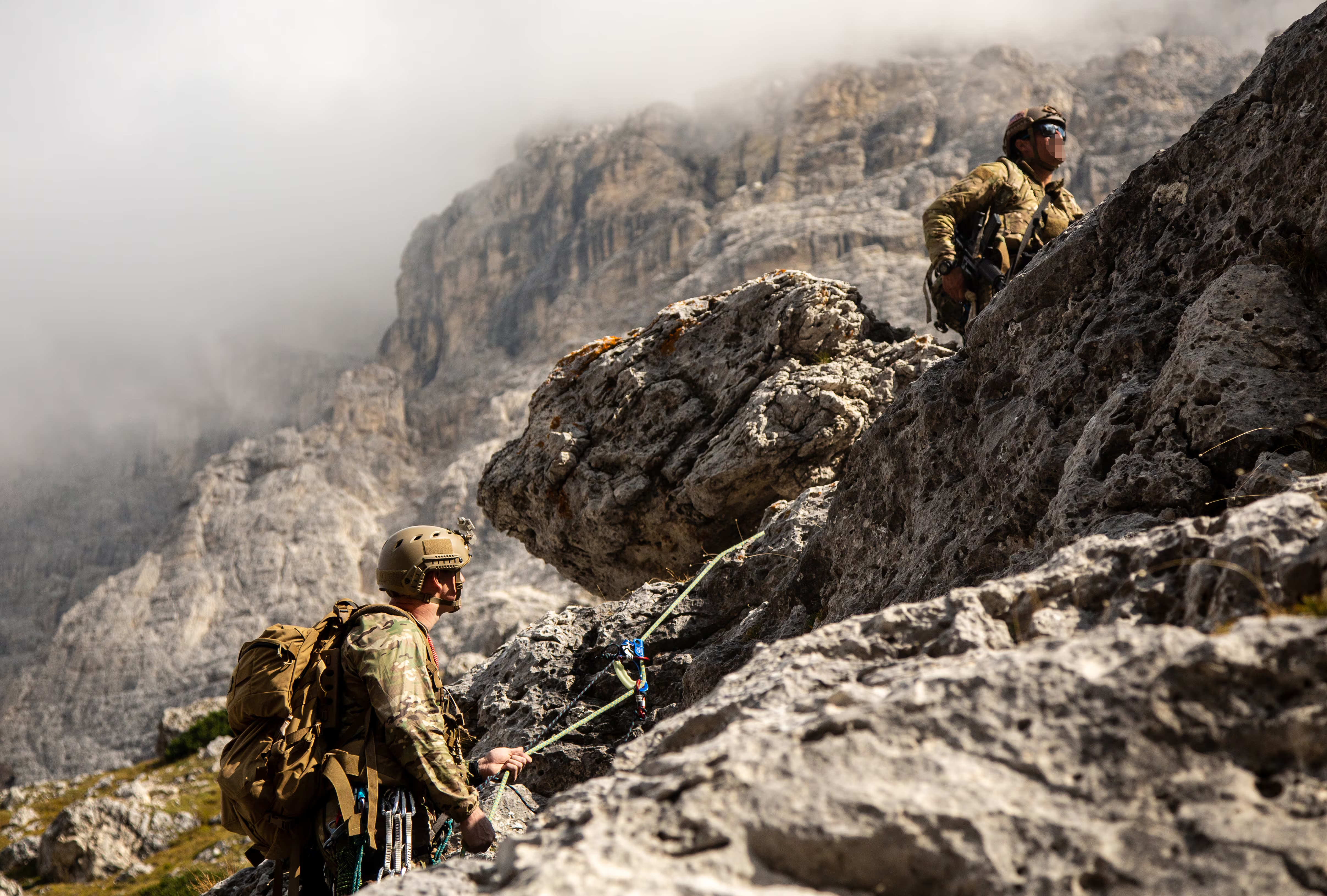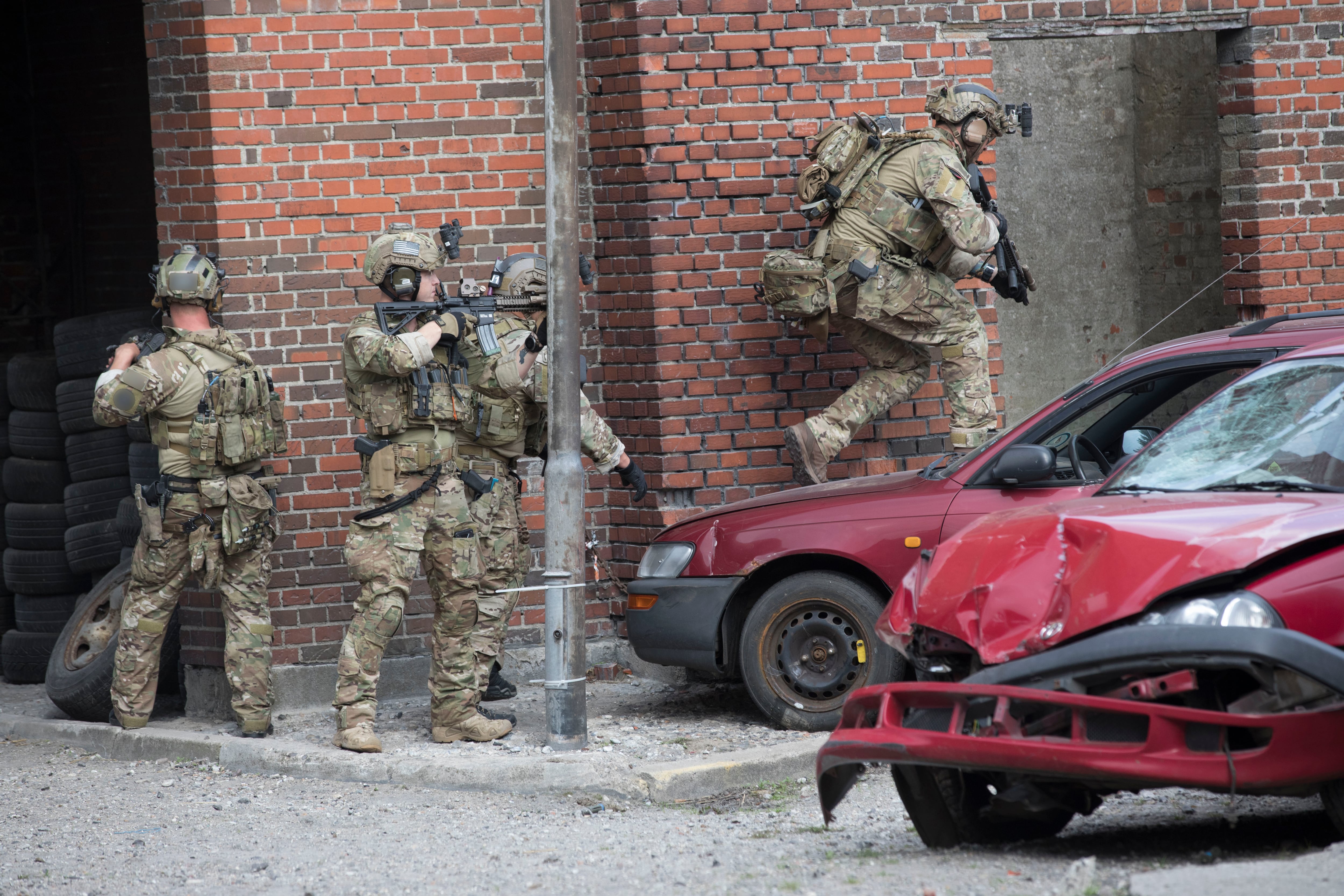Congress wants to ensure special operations forces are being used for missions that fit their roles, leaving other tasks to conventional troops.
In text added to the 2020 defense budget bill this week, lawmakers ordered an independent review of SOF force structure, roles and responsibilities. Organizations like the RAND Corporation are often tapped for reviews like this one, which would be due next summer.
The measure is intended to better align SOF troops to the new National Defense Strategy, which prioritizes great power competition over counter-insurgency and other tasks that have preoccupied the military for nearly two decades.
"Some of this is standard, but it also reflects a growing understanding on the Hill that SOF are being used for a number of activities that could also be — and perhaps should also be — performed by conventional forces,” said Phillip Lohaus, a visiting fellow at the American Enterprise Institute who previously worked as an analyst for the Pentagon.
The percentage of SOF troops deployed to Europe “has grown significantly over the last several years,” lawmakers wrote in their defense bill markup, adding that a review of the force will be necessary “for effective operations as well as managing geopolitical and force protection risk related to any operations.”
House Armed Services Committee lawmakers also ordered a review on how much money SOF activities are truly costing each year. U.S. Special Operation Command’s budget request for 2020 is $13.8 billion. But that number is deceiving.
Each of the services support and enable SOF troops as well, adding another $8 billion and "bringing the total amount requested for SOF to more than $21.0 billion,” the markup reads.
RELATED

Other agencies within the Pentagon, like the Defense Threat Reduction Agency, which counters weapons of mass destruction, also request funds to support SOF troops that may not be reflected in the total, according to lawmakers.
“The [independent review] request will provide them with information about where to better direct SOF resources, and the budget fidelity will allow them to determine whether some SOF funding is being redirected for conventional force purposes, something that has been a problem in the past,” Lohaus said.
The language added to the defense bill also requires a review of the organizational structures within the military’s geographic combatant commands and theater-level special operations commands.

Lohaus said that requirement is likely an attempt to ensure that the current structures are actually aligned to the new national defense priorities outlined in strategic documents over the past year.
“In INDO-PACOM, for example, the regional posture of SOF may not currently reflect the intent behind these documents," Lohaus said. "And in Europe, SOF may be called upon to expand their cooperation with their NATO counterparts on a number of different fronts in an effort to better deter Russia.”
NATO Special Operations Headquarters is also realigning under European Command, reflecting “the growing realization that SOF will play a critical role in deterring in the ‘grey space’ or in ‘hybrid warfare,’” on the continent, Lohaus said.
Placing NATO SOF into EUCOM will ease facilitation between the NATO-wide SOF community and the larger strategic aims of the regional combatant command, he added.
The Pentagon has pursued other force realignment measures over the past year. For instance, U.S. Africa Command will trim about 10 percent of the 7,200 military forces serving in its area of operations over the next several years to better align with national strategy.
Some tasks historically done by special operators, like training partner forces, are increasingly performed by conventional units, especially with the advent of the security force assistance brigades.
Kyle Rempfer was an editor and reporter who has covered combat operations, criminal cases, foreign military assistance and training accidents. Before entering journalism, Kyle served in U.S. Air Force Special Tactics and deployed in 2014 to Paktika Province, Afghanistan, and Baghdad, Iraq.





